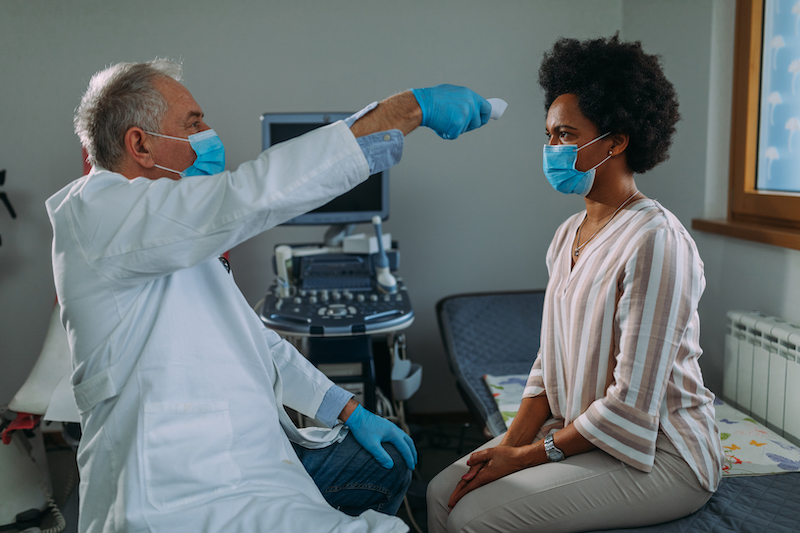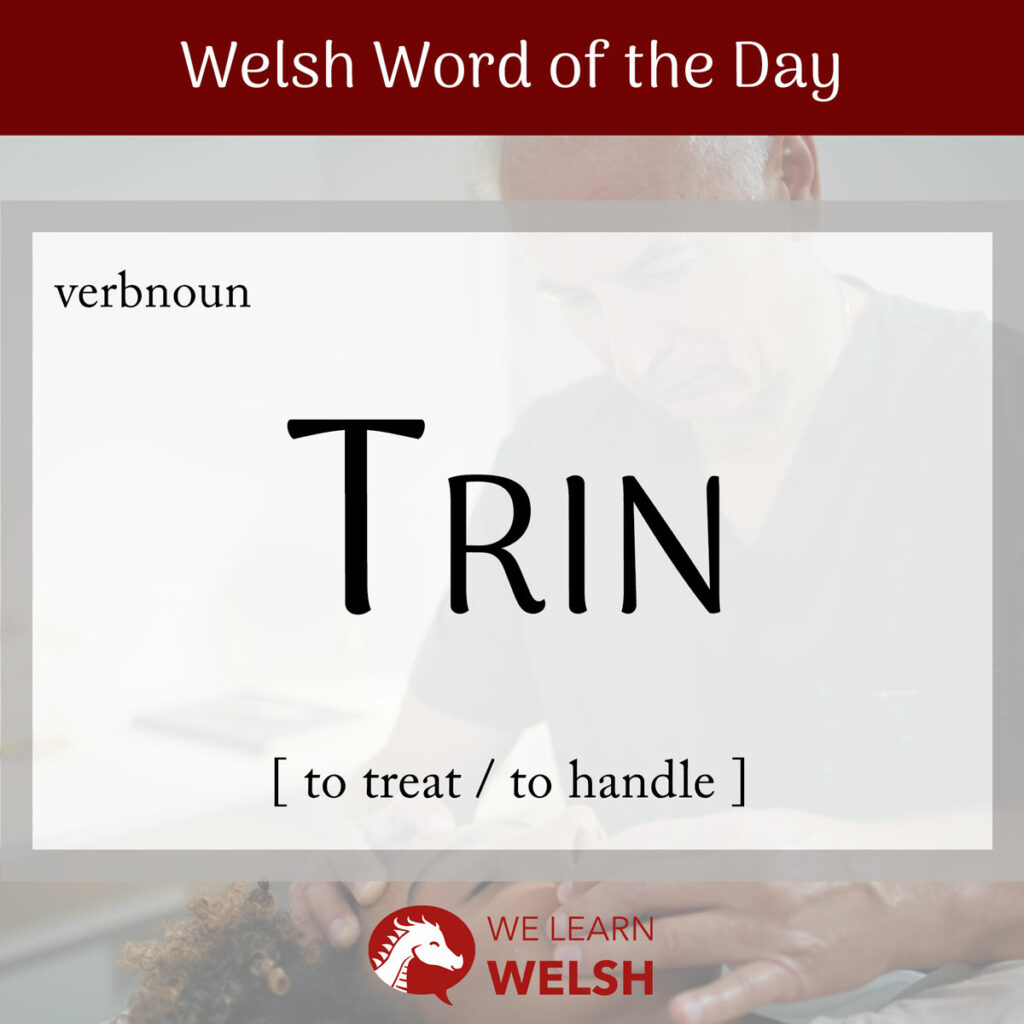At some point in almost everyone’s life, they’ll suffer a briw (injury) or contract a salwch (illness), and will need to get a meddyg (doctor) to trin (treat) them.
In English, this word treat has a variety of meanings, though, beside the most obvious medical one. And in Welsh it’s just the same! Read on, and we’ll discuss all the different ways you can trin (handle) the word trin in the Welsh language.
trin
to treat
Briefly, trin can be used to refer to any action where someone is dealing with something. In particular, it often refers to trefnu (ordering), glanhau (cleaning), prosesu (processing), trwsio (mending), or paratoi (preparing) physical things.
This includes triniaeth meddygol (medical treatment), but also cultivating land (trin tir), dressing meat for cooking (trin cig), discussing a subject (trin pwnc), and even the way that we trin other people, as in behave towards them. Someone who’s known to have good people skills has sgiliau trin pobl.
More abstractly, trin may refer to discussing a pwnc (subject). This sounds less formal than the equivalent to treat a subject would in English. You might hear this phrased as trin a thrafod (to treat and discuss), or sometimes in the variant form ymdrin â.
And in modern Welsh, you may sometimes hear trin used in the sense of to treat something seriously or to treat something as a joke. However, in this context, you would traditionally instead use ystyried (to consider).
Lastly, trin can be used, often jocularly, to mean to scold / to tell off.
Soft mutation
drin
Nasal mutation
nhrin
Aspirate mutation
thrin
This word also had an archaic usage as a noun meaning battle, but today, the word brwydr is used instead. It’s unclear whether the two are etymologically related, or indeed where either originates from, but it seems likely that in the earliest examples of trin being used as a verb in Welsh, it usually appeared in the form trino or trinio.
There are three noun forms of trin. Triniaeth (treatment, sometimes management / handling) is the most common. Triniad is also best translated to treatment, but is less common, less general, and refers more properly to the act of treating a specific thing. Trinogaeth is a synonym of triniaeth that is less popular and more old-fashioned.

Here are some more useful related terms and simple phrases:
- wedi’i drin = having been treated
- ymdrin = to handle / to deal with
- rhag-drin = to pre-treat
- cam-drin = to mishandle / mistreat / abuse
- triniwr = handler
- trin yn arw = to manhandle
- hydrin = malleable
- tringar = gentle / sensitive
The job of a meddyg or a nyrs (nurse) is to trin cleifion (treat patients), sometimes phrased as rhoi triniaeth i gleifion (give treatment to patients). In particular, they often need to trin afiechyd (treat disease).
Trinith y pediatregydd y plentyn.
The paediatrician will treat the child.
Sometimes serious health conditions, or injuries, require the attention of a llawfeddyg (surgeon) who can administer llawdriniaeth (surgery). Both of these words use llaw (hand) as a prefix, although if I was ever to undergo llawdriniaeth I would hope that the llawfeddyg was using tools rather than their dwylo (hands)!
A person who needs to cael triniaeth (receive treatment) should attend an ysbyty (hospital) or a meddygfa (clinic / surgery), where they might also receive advice on their general iechyd (health). If it’s an emergency, they’ll have to call an ambiwlans (ambulance).
If they can’t get any professional medical treatment, they’ll have to find out sut mae trin rhywun (how do you treat someone) with their specific cŵyn (ailment / complaint).
Aside from wounds and illnesses, here are some of the most common things to trin in Welsh:
- trin gwallt = to cut / style hair
- trin dwylo = to manicure
- trin anifeiliad = to handle animals
- trin arian = to manage money
- trin car = to service a car
- trin carthion = to treat sewage
- trin data = to handle data
- trin lledr = to tan leather
- trin y tir = to cultivate land
- trin ffeiliau = to handle files
… any many, many more!
Rhaid i mi fynd i’r siop trin gwallt.
I have to go to the hairdresser.
So, to recap, trin, like the verb treat, has a broad variety of meanings beyond just medical treatment. Indeed, the Welsh term is even more diverse in its usage than its English equivalent.
Let’s finish up with a fun Welsh idiom – did you know that gossiping in Welsh is often referred to as trin ceffyl pobl eraill (treating other people’s horses)? And there are plenty of other words and phrases for to gossip as well, like gwersan, hel straeon, hel clecs, clepian and cloncan to name but a few. Whether or not that tells us anything about Welsh culture, I’ll leave it up to you to decide!

